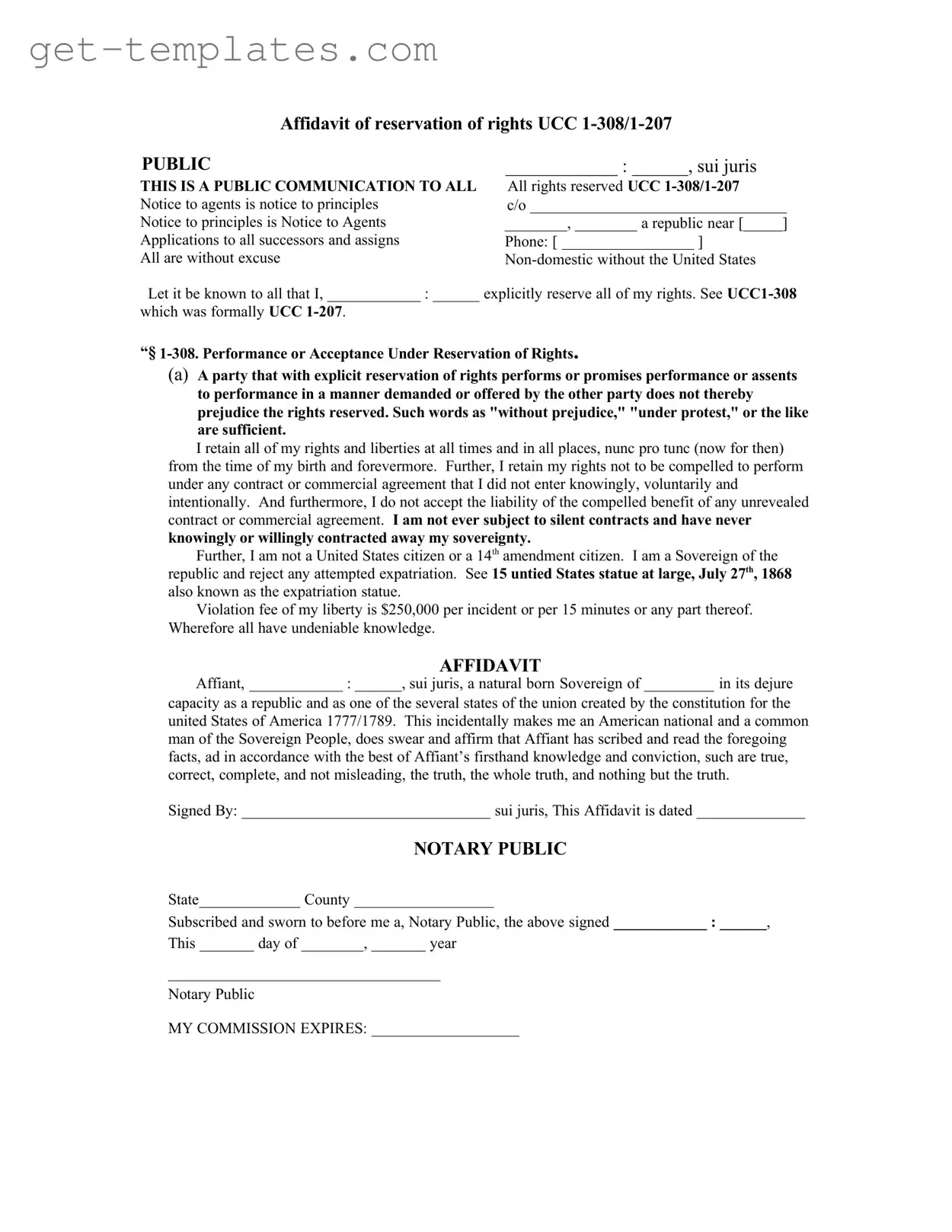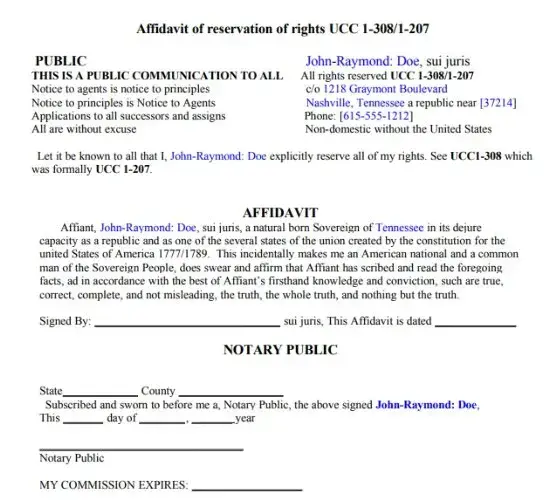Let it be known to all that I, ____________ : ______ explicitly reserve all of my rights. See UCC1-308
which was formally UCC 1-207.
Ҥ 1-308. Performance or Acceptance Under Reservation of Rights.
(a)A party that with explicit reservation of rights performs or promises performance or assents to performance in a manner demanded or offered by the other party does not thereby prejudice the rights reserved. Such words as "without prejudice," "under protest," or the like are sufficient.
I retain all of my rights and liberties at all times and in all places, nunc pro tunc (now for then) from the time of my birth and forevermore. Further, I retain my rights not to be compelled to perform under any contract or commercial agreement that I did not enter knowingly, voluntarily and intentionally. And furthermore, I do not accept the liability of the compelled benefit of any unrevealed contract or commercial agreement. I am not ever subject to silent contracts and have never knowingly or willingly contracted away my sovereignty.
Further, I am not a United States citizen or a 14th amendment citizen. I am a Sovereign of the republic and reject any attempted expatriation. See 15 untied States statue at large, July 27th, 1868 also known as the expatriation statue.
Violation fee of my liberty is $250,000 per incident or per 15 minutes or any part thereof. Wherefore all have undeniable knowledge.
AFFIDAVIT
Affiant, ____________ : ______, sui juris, a natural born Sovereign of _________ in its dejure
capacity as a republic and as one of the several states of the union created by the constitution for the united States of America 1777/1789. This incidentally makes me an American national and a common man of the Sovereign People, does swear and affirm that Affiant has scribed and read the foregoing facts, ad in accordance with the best of Affiant’s firsthand knowledge and conviction, such are true, correct, complete, and not misleading, the truth, the whole truth, and nothing but the truth.
Signed By: ________________________________ sui juris, This Affidavit is dated ______________
NOTARY PUBLIC
State_____________ County __________________
Subscribed and sworn to before me a, Notary Public, the above signed ____________ : ______,
This _______ day of ________, _______ year
___________________________________
Notary Public
MY COMMISSION EXPIRES: ___________________


